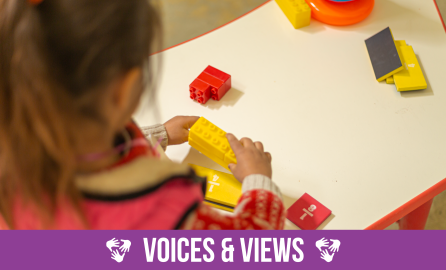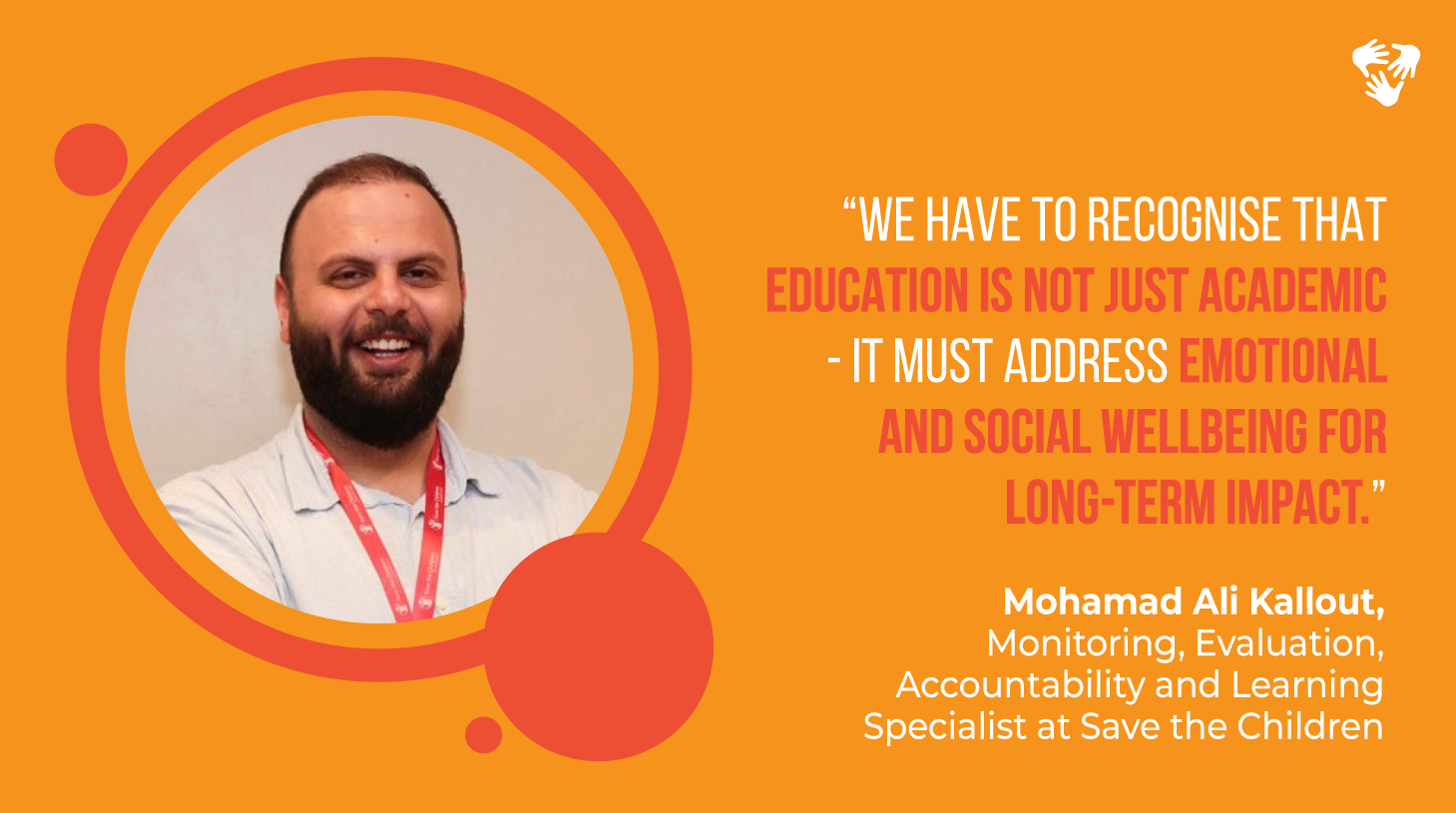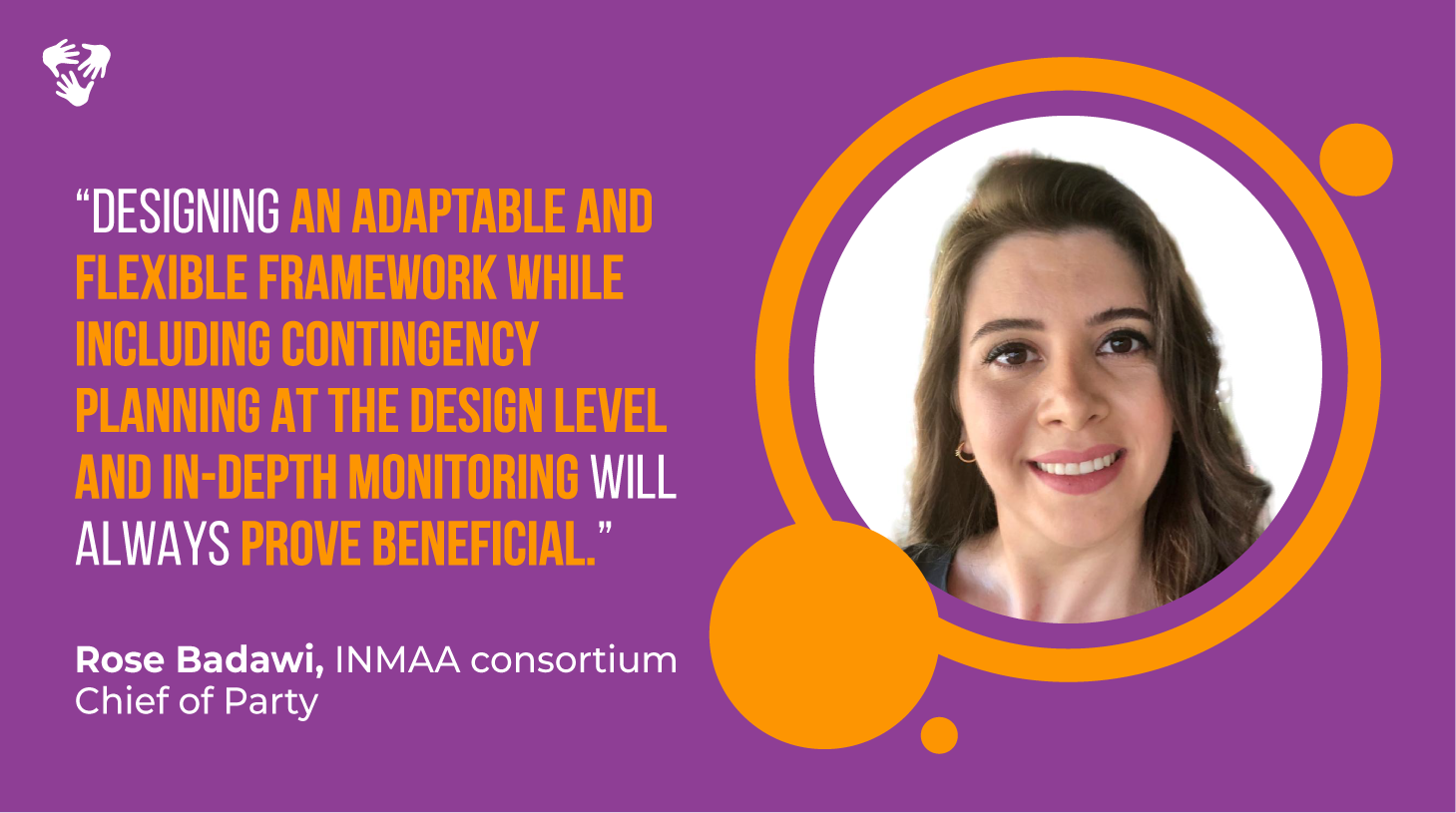According to recent data from Save the Children, 14% of children and adolescents worldwide experience some mental health disorder, including children living in conflict and displacement. Yet only a mere 1% of the world’s health budget is spent to tackle children’s mental health. In Lebanon, the sudden recent escalation of hostilities has brought about new sets of challenges amid an already impossible situation on the ground.
The impact on the psychosocial wellbeing of children is now more acute than ever, with mental health support being a primary need that has to be addressed with urgency - like the need for clean water, shelter and food.
With the financial support of the European Union via the EU Regional Trust Fund in Response to the Syrian Crisis, Save the Children was able to support almost 15 000 children in reaching their full potential in Lebanon by adding emotional learning to more traditional education provisions.
From isolation to self-confidence: how psychological support can help children reach higher
“Jana was always by herself, in a corner, not interacting with anyone,” says Hassan, Jana’s father. Jana was one of the beneficiaries of the Save the Children’s project ‘Supporting the right to quality education for vulnerable Syrian and host community children and youth.’ “I took her to several doctors who told me she had autism and that we had to wait until she turned eighteen for the condition to improve. I had lost hope,” he continues. Jana was withdrawn and unable to connect with anyone.
Everything changed when Hassan registered his daughter at the Early Childhood Education Centre (ECE), where teachers are trained to not only provide education but to support children like Jana. “As teachers, we were trained to identify any issues the children had and how to deal with them,” explains Rita Chamoun who teaches Math and Chemistry at the centre. “The main focus is the safety of the children, how to help them continue their studies throughout the year and on how to identify the need for psychological support,” she says. “Besides teaching, we nurture our students; we provide them with more than just education. We are raising generations, not just teaching them.”
Thanks to the inclusion of a strong psychosocial support mechanism in the context of the provision of basic, non-formal education, Jana and many other children like her are thriving. Incorporating social-emotional learning and management was definitely key.
“When Jana was diagnosed with autism, I was afraid she would never be able to live a normal life. I never thought she would be able to talk or interact with others, but the teachers believed in her and gave her the tools she needed to succeed. The support she received was invaluable and her progress has been nothing short of miraculous,” says Hassan. Today Jana speaks with her peers, is very excited to learn new things, bickers with her siblings, like any child should.
|
Lessons learnt from the Save the Children team: |
“A cornerstone of the project was its emphasis on psychosocial support (PSS),” explains Mohamad Ali Kallout, Monitoring, Evaluation, Accountability and Learning Specialist at Save the Children. Lebanon’s many crises created a dire environment for education, especially for vulnerable groups like Syrian and Palestinian refugees and Lebanese host communities. The project focused on marginalised children in hard-to-reach areas, including children with disabilities.
The psychosocial component emphasised activities with the objective of:
-
promoting resilience and emotional well-being of children;
-
providing targeted mental support to students;
-
equipping parents with skills to foster the emotional stability of their children at home;
-
developing Individual Education Plans in collaboration with parents, including for children with disabilities;
-
establishing parent support groups to deepen the involvement of caregivers;
-
linking children and families as needed to other specialised services including legal, mental health, and child protection services.
Being able to implement a holistic approach proved to be quite effective, especially in the case of integrating services like legal aid, mental health support and material assistance, including learning kits and assistive devices for children with disabilities. In particular, blending Social and Emotional Learning (SEL) and the Basic Literacy Programme (BLP) helped children build emotional resilience while improving their overall learning experience. “Focus group discussions revealed that SEL activities improved children's confidence and their ability to manage stress,” adds Mohamad Ali Kallout.
This comprehensive approach allowed implementing partners to address the different challenges that are critical to education to guarantee that the barriers and needs of children are dealt with and considered horizontally. The integration of emotional learning helped children process past traumas and better adapt to their challenging living conditions, while feeling significantly safer and more confident in their abilities.
“We have to recognise that education is not just academic – it must address emotional and social wellbeing for long-term impact,” says Mohamad Ali Kallout. He adds: "document and disseminate successes and lessons learnt to influence broader sector practices and improve future interventions.”
Adaptability, advocacy and community engagement are key to success
Implementing partners showed remarkable adaptability throughout the duration of the project. The COVID-19 pandemic, Lebanon’s economic hurdles, the Beirut explosion, and widespread poverty forced them to quickly transition to different strategies to limit educational disruptions to children. “Designing an adaptable and flexible framework while including contingency planning at the design level and in-depth monitoring will always prove beneficial,” says Rose Badawi, INMAA consortium Chief of Party.
While being flexible, take advantage of advocacy as much as possible: strategic partnerships with local NGOs and government authorities will help amplify the project’s impact, sometimes leading to systemic changes. “Engaging with policymakers and stakeholders to align project goals with national strategies will help achieve sustainability and create change. Advocacy efforts within this project influenced national education policy by facilitating the transitioning of children from non-formal to formal education,” explains Rose Badawi.
Including community engagement to the mix will play a pivotal role in projects like the one implemented by Save the Children in Lebanon: “community-based outreach helped effectively identify out-of-school children, particularly in hard-to-reach areas, while collaboration with local leaders and NGOs ensured that efforts were not duplicated,” adds Mohamad Ali Kallout. Establishing local partnerships early on and investing in building strong local capacities will increase chances for more long-term impact and sustainability.
The power of integrating emotional learning into education
Addressing emotional and educational needs in a fully integrated way should be a no-brainer when designing and implementing education projects. There are still too many children facing traumatic situations that leave unresolved psychological fractures they will carry inside for the rest of their lives if not addressed in a timely manner.
Resilience-building, caretakers’ involvement, and emotional management while educating the next generations must be prioritised if we are serious about creating long-lasting impact. Projects like the one implemented by Save the Children with the support of the EU Trust Fund for Syria show that, if given the right tools, children will overcome anything and thrive as they deserve to.
The Capacity4dev team would like to give special thanks to Save the Children for the support lent in writing this article against the backdrop of the difficult security situation in Lebanon at the time of writing.
Like, comment and share this article with your peers, and watch the video below!






Log in with your EU Login account to post or comment on the platform.